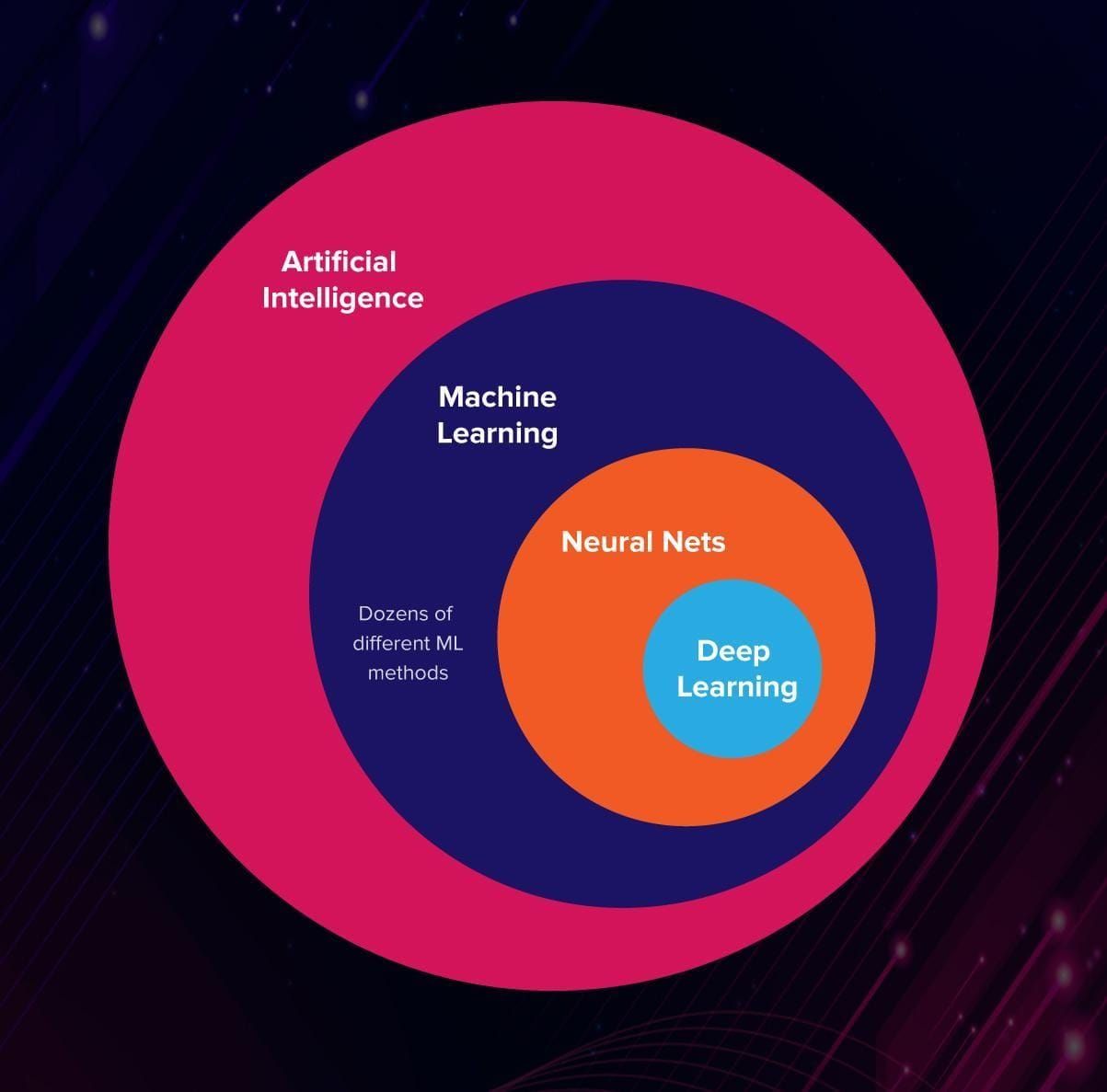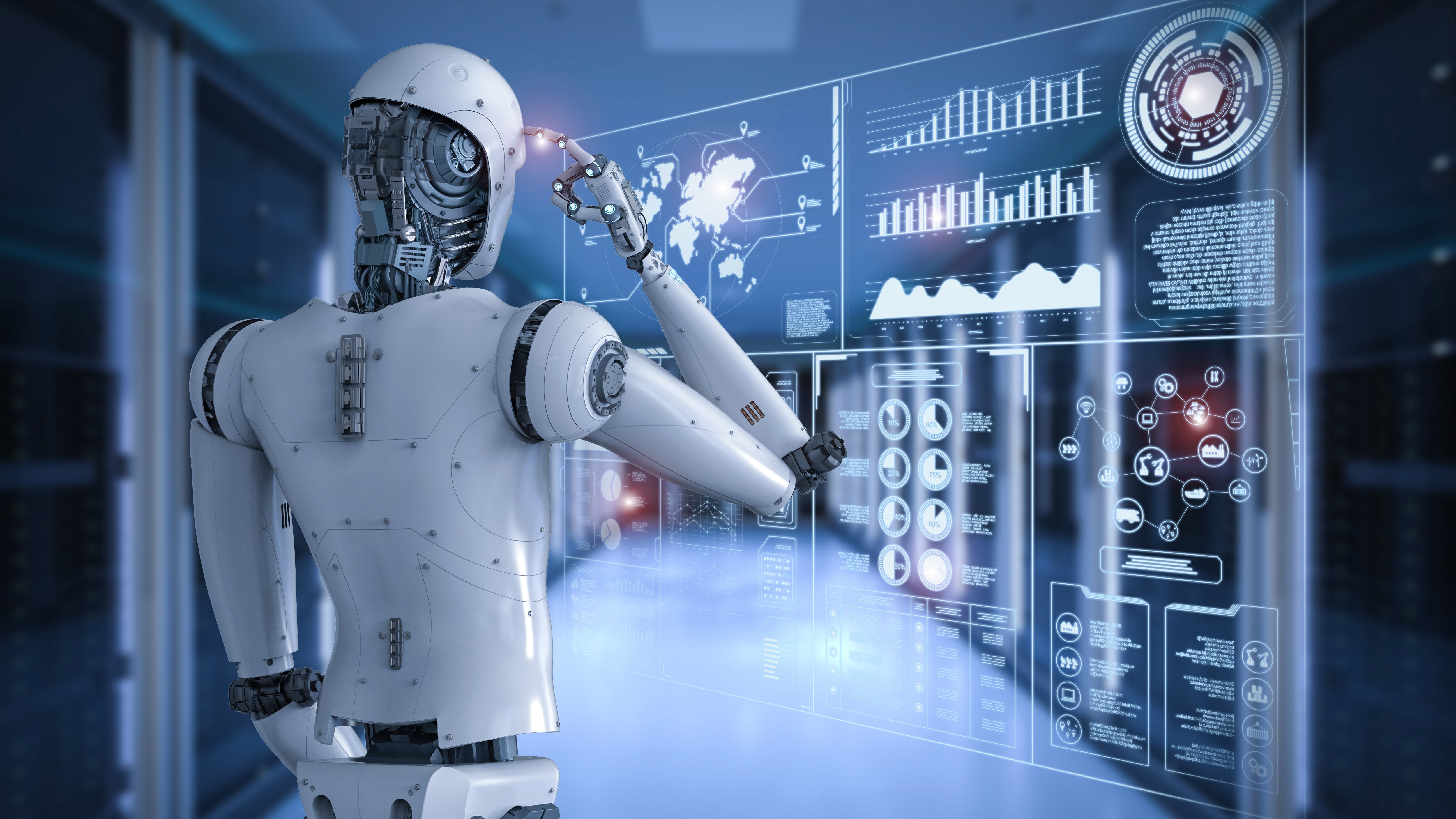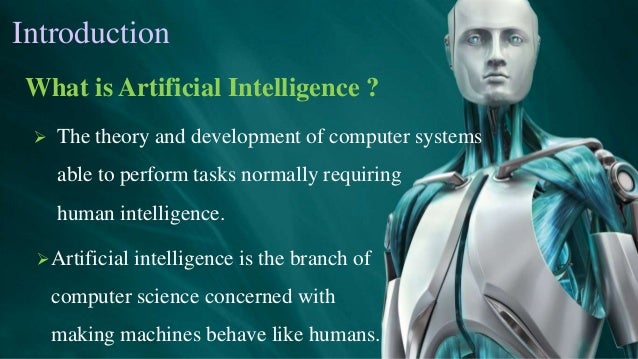Artificial Intelligence Presentation
| Introduction to Artificial Intelligence | ||
|---|---|---|
| Artificial intelligence (AI) refers to the simulation of human intelligence in machines. AI enables machines to learn from experience, adapt to new inputs, and perform tasks that typically require human intelligence. Applications of AI include speech recognition, image processing, natural language processing, and autonomous vehicles. | ||
| 1 | ||
| Types of Artificial Intelligence | ||
|---|---|---|
| Narrow AI, also known as weak AI, is designed to perform a specific task and is the most common form of AI today. General AI, also known as strong AI, possesses human-like intelligence and can perform any intellectual task that a human being can do. Superintelligence refers to AI systems that surpass human intelligence in virtually every aspect. | ||
| 2 | ||
| Machine Learning in Artificial Intelligence | ||
|---|---|---|
| Machine learning is a subset of AI that focuses on the development of algorithms that enable computers to learn and make predictions or decisions based on data. Supervised learning involves training the machine using labeled data to make predictions or classify new data. Unsupervised learning involves training the machine with unlabeled data to discover patterns or relationships. | ||
| 3 | ||
| Deep Learning in Artificial Intelligence | ||
|---|---|---|
| Deep learning is a subset of machine learning that uses artificial neural networks to simulate the way the human brain works. Deep learning algorithms can automatically learn hierarchical representations of data, enabling them to achieve state-of-the-art performance in tasks such as image and speech recognition. Deep learning has revolutionized many fields, including healthcare, finance, and autonomous driving. | ||
| 4 | ||
| Ethical Considerations in Artificial Intelligence | ||
|---|---|---|
| AI raises ethical concerns, such as job displacement, privacy invasion, and bias in decision-making. Ensuring transparency and accountability in AI algorithms is crucial to address bias and prevent discriminatory outcomes. Governments and organizations are developing ethical frameworks and guidelines to govern the responsible use of AI. | ||
| 5 | ||
| Challenges of Artificial Intelligence | ||
|---|---|---|
| The lack of interpretability in AI algorithms poses challenges in understanding how decisions are made. AI systems can be vulnerable to adversarial attacks, where malicious actors manipulate inputs to deceive the system. The potential for AI to surpass human intelligence raises concerns about control and safety. | ||
| 6 | ||
| Future of Artificial Intelligence | ||
|---|---|---|
| AI is expected to continue advancing rapidly, leading to significant societal and economic transformations. Integration of AI with other emerging technologies, such as Internet of Things (IoT) and robotics, will further enhance its capabilities. Ensuring ethical development and deployment of AI will be crucial for harnessing its full potential. | ||
| 7 | ||
| Conclusion | ||
|---|---|---|
| Artificial intelligence is transforming various industries and enabling new possibilities. Ethical considerations, interpretability, and safety are key challenges that need to be addressed. The future of AI holds great promise and requires collaboration between researchers, policymakers, and society. | ||
| 8 | ||
| References (download PPTX file for details) | ||
|---|---|---|
| Russell, S., & Norvig, P. (2016). Artificial ... Goodfellow, I., Bengio, Y., & Courville, A. (... Bostrom, N. (2014). Superintelligence: Paths,... |  | |
| 9 | ||







